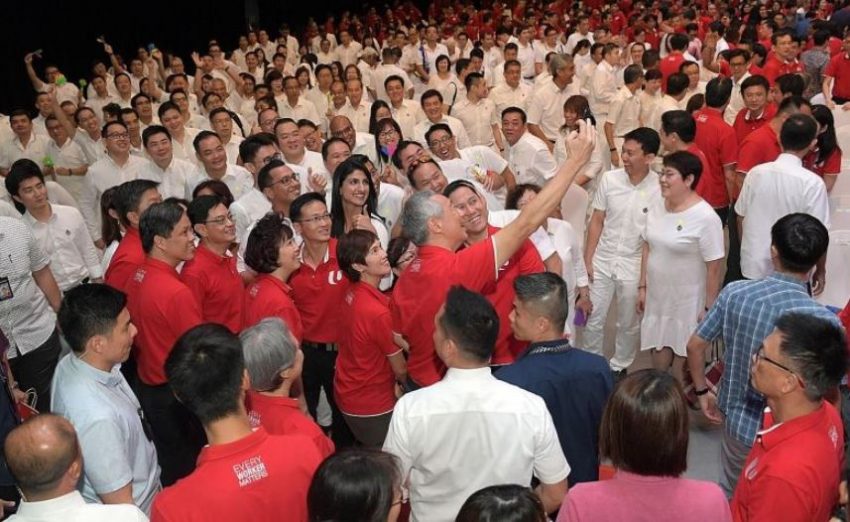The National Trades Union Congress (NTUC) held their National Delegates Conference (NDC) at Orchid Country Club on the 15 – 16 October 2019, where the Union Leaders sit in workshops to discuss and address issues workers’ are facing, answering delegates’ concerns, reviewing the past four years Labour Movement performance and setting targets for the next four years.
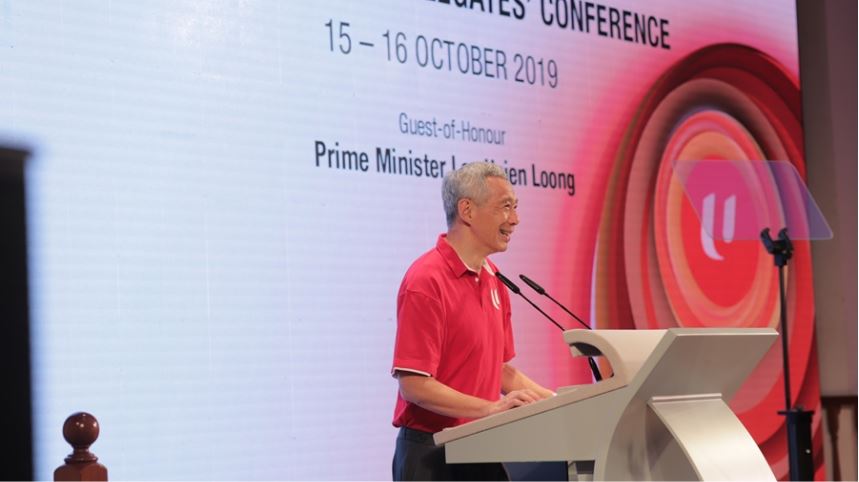
The NDC this year is a “special” one as it marks the 50th anniversary of the 1969 modernisation seminar, said PM Lee during his opening speech.
In 1967, the British announced that they would withdraw their troops including military bases in Singapore.
It was a crisis moment for Singapore as it meant the loss of more than 20,000 jobs and 14% of our GDP.
The PAP leadership was clear on what needed to be done. They pursued industrialisation aggressively, grew the manufacturing sector, set up factories and create jobs for Singaporean.
But factories alone would not make us attractive to foreign investments.
To make Singapore attractive to foreign investments, the government passed the Industrial Relations (Amendment) Act to give employers the right to hire, promote and fire employees unilaterally, without first having to consult the union.
The government also introduced the Employment Act to standardise and regulate the terms and conditions of employment for all workers, and eliminate bad work practices left over from the colonial era.
The union did not welcome these legislative changes as it curtailed the bargaining power of the unions.
Mr Devan Nair, then an advisor to the NTUC, said, the Labour Movement was caught in “a race between modernisation and extinction”.
Either the Labour Movement change and become relevant and play a useful role or continue with the old model, old thinking and action and become extinct.
The unions made a sensible decision during the modernisation seminar 50 years ago,.
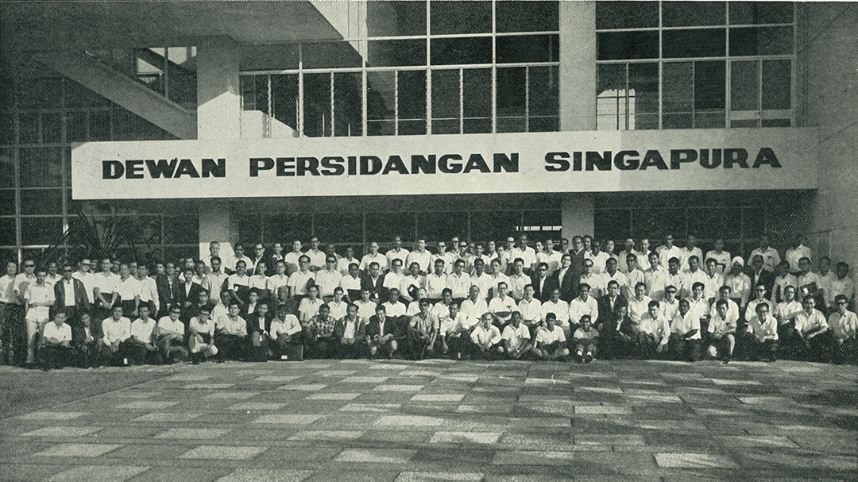
NTUC decided to change course and to chart out a new future. That was the turning point for the Union.
Three key PAP leaders spoke at the Seminar: Mr Lee Kuan Yew, Dr Goh Keng Swee, and Mr S Rajaratnam.
They spoke frankly to the delegates. They laid out the harsh realities facing Singapore, and argued and persuaded the unions that they had to take a broader perspective when looking after workers’ interests.
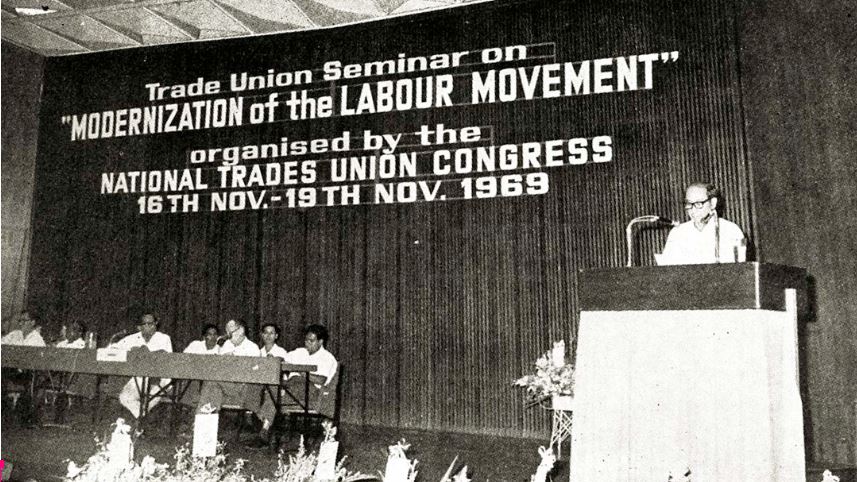
It was a very challenging agenda for the government but by the end of the seminar, a new compact had been forged between the political leaders and the union leaders.
All 47 NTUC-affiliated union declared that they have accepted the “full responsibility, co-equally with Government and management, for the survival of Singapore in the crucial years ahead, and for its continued and expanding economic development and modernisation”.
‘Full responsibility together with the government and management’ means tripartism.
The NTUC was no longer just an institution for collective bargaining. It saw itself as a partner in Singapore’s economic and social transformation.
This led to our unique tripartite relationship, which has underpinned half a century of harmonious industrial relations.
Union affiliated to a political party is not unique to Singapore.
In many countries around the world, the union have affiliations with political parties or the government.
This is because they need political momentum, power and ground support for them to conduct their activities and operations.
The basis of affiliation is to improve the standard of living for members, through affiliation trade unions make use of political action as well as industrial action to achieve outcomes for paying members.
The association with a political party also allows an industrial organisation the venue of pursuing its aims for the benefit of members along more than one path: they can achieve industrial goals, economic goals, expansion, growth and use the Party’s brand for legitimacy.
All over the world trade unions and their associated confederations work very closely with politicians, because the reality is: you’re not going to be able to get anything done without political backing. Some trade unions in other countries even contribute funds directly to their affiliated parties.
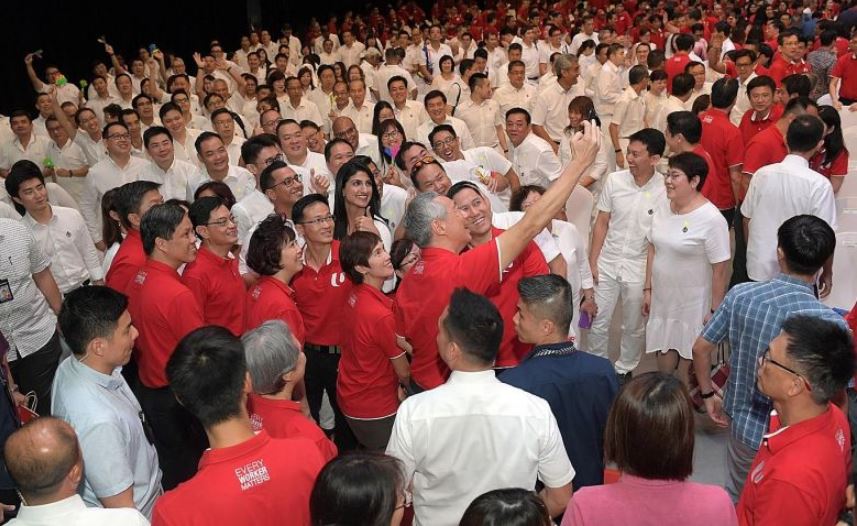
Looking ahead the bonds between the PAP and NTUC leadership have to be sustained and strengthened.
This is because Singapore is once again sailing into uncharted waters. The world is filled with uncertainties.
Singapore’s economy is entering a new phase. Technology is transforming many industries. Emerging businesses are disrupting established players.
To avoid such dire outcomes in Singapore, one key foundation is the symbiotic relationship between the PAP and NTUC.
“We already have a Government that represents workers’ interests – it is the PAP Government. The party will remain close to its roots in the Labour Movement. That is why many PAP Members of Parliament are from NTUC. And in Cabinet, the NTUC Secretary-General sits as a full Minister, and speaks up for workers when policies are made,” said Mr Lee.
The PAP fundamental objective is to advance the well-being and future of workers.
“Workers have enjoyed a fair share of the fruits of your efforts. You have influence and interests within the system. You don’t have to go outside it, work around it, or worse, try to pull it down. This is your system. The PAP is working with you, for you, for Singapore.” said Mr Lee.
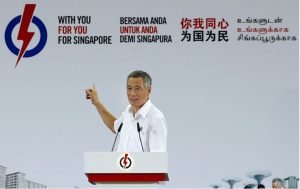
At the Labour Movement Modernization Seminar in 1969, Singapore pioneer leaders such as Mr Lee Kuan Yew, Mr S Rajaratnam and Dr Goh Keng Swee had promised to keep Singaporean workers at the centre of Singapore’s economic and social developmental efforts.
“This promise remains as relevant and essential today, as it was 50 years ago… We will always stand with workers and ensure your well-being. We will always do our best to help you and your children progress with Singapore, and have a better life. And we will ensure that no Singaporean, regardless of family background or circumstances, will ever be shut out from opportunities or left behind,” said Mr Lee.
Workers in Singapore have to be ready for changes and be ready to face the challenges ahead.
